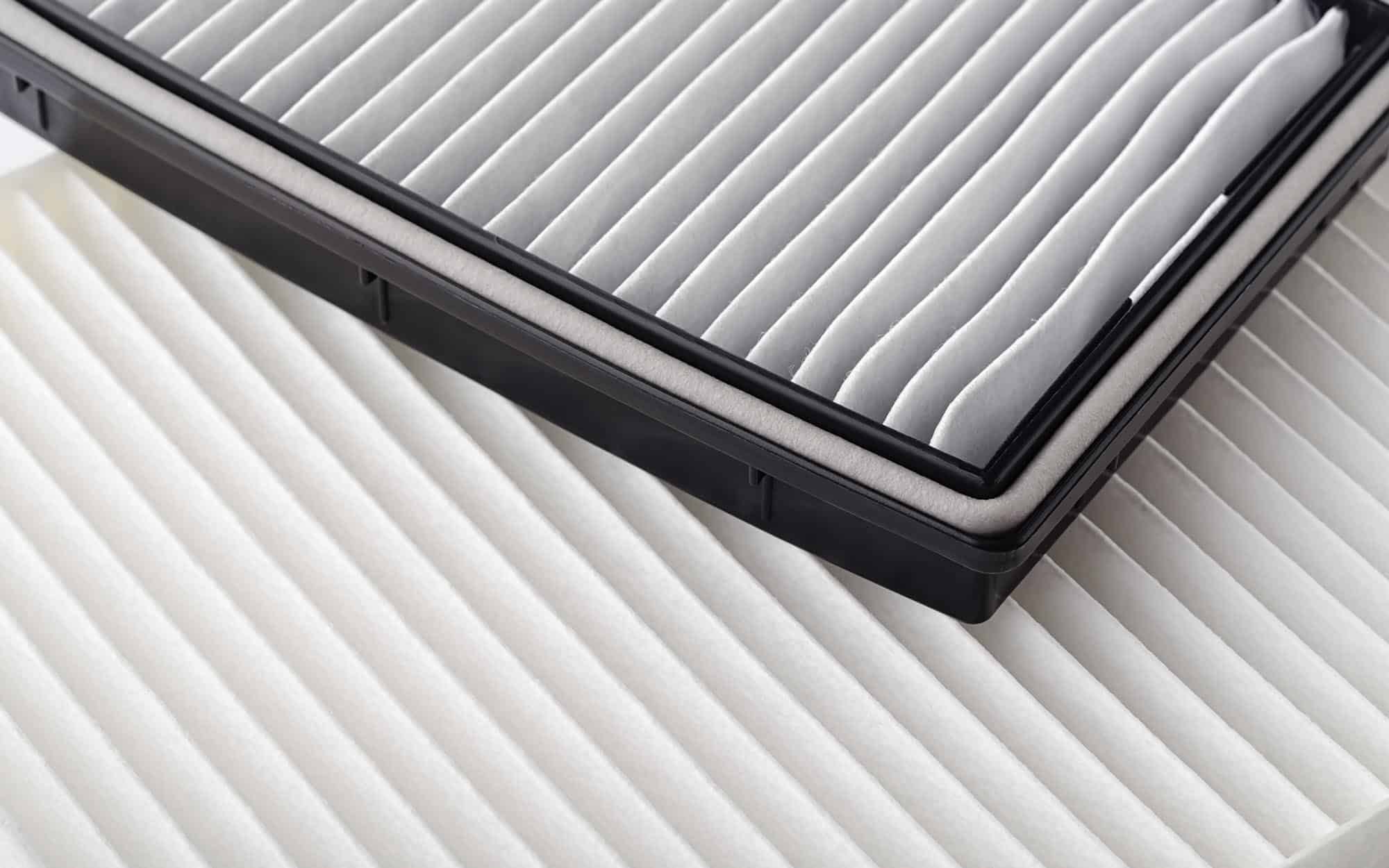
Want to create clean air in your commercial building? A HEPA air filter for AC can help you do that. Let’s look at what a commercial HEPA filter is, what it does, and how it improves your building’s indoor air quality (IAQ).
What Is a HEPA Filter?
A high-efficiency particulate air filter or HEPA filter is a device that separates out 99.97% of all particles from the air. These filters were first invented in the 1940s for the scientists who developed the atomic bomb during World War II. HEPA filtration prevented these scientists from inhaling radioactive waste in the air around them. In the following decades, HEPA filtration helped astronauts breathe during the moon landings. Since then, commercial applications for HEPA filters for AC have expanded to include hospital installations and other commercial building uses to prevent bacteria, viruses, and allergens from harming building occupants. They work in residential homes to filter out pet dander and other contaminants that could spark allergy and asthma problems for homeowners and their families.
HVAC technicians install central air HEPA filters in air conditioners to filter out potentially harmful air particles. These filters are much thicker than traditional air filters in order to trap more particles. They filter both larger particles and smaller ones, including some as tiny as 0.3 microns. HEPA filters pair with HVAC systems based on each system’s minimum efficiency reporting value (MERV) ratings. Most commercial HEPA filters work on HVAC systems with MERV 16 ratings, while many residential HEPA filters work with systems that have MERV 8, 11, and 13 ratings. Pairing the filters with systems that have the right MERV ratings helps bring HEPA filters’ advantages to commercial buildings and residential homes.
Do HEPA Filters Fit All Air Conditioners and HVAC Systems?
The answer is no. Filters with MERV 16 ratings are very big and powerful, and they work best for large commercial HVAC systems. The lower MERV ratings sometimes fit smaller commercial systems and some residential systems. However, some commercial and residential systems need HEPA-related alternatives like bipolar ionization because typical HEPA filters don’t fit their designs.
What Types of HEPA Filter Options Can Building Managers Use?
When you start working with HEPA technologies, you have a couple of options:
- Install a HEPA-rated air conditioning system: These systems have MERV ratings of 17 to 20, which is higher than most commercial HVAC systems. They are large and powerful, so they work best in large commercial facilities. If you have a smaller commercial facility, you should consider one of the other options below.
- Add a HEPA filter to your current HVAC system: This is often the most feasible option for building managers and homeowners. With this option, your HVAC contractor comes to your building and installs the filter in your current system. It filters out dirt, bacteria, and dust particles effectively after its installation is complete.
- Use a portable HEPA filtration unit: If a HEPA filter doesn’t fit in your HVAC system, a portable filter provides all the same advantages outside of your system. You can carry the portable unit from room to room to clean the air whenever necessary.
Connect with us today to install a commercial-grade HEPA air filter for AC in your existing HVAC system.
How Do HEPA Filters Improve IAQ?
HEPA filters improve your facility’s indoor air quality by removing a wider range of particles than traditional filters. As mentioned above, they trap extremely small particles that other filters miss. That means they catch a wide variety of viruses, bacteria, and allergens that could otherwise harm your occupants if left unchecked. HEPA filters remove those contaminants from the equation and make your building’s air healthier for everyone to breathe.
Why Get Professional Help Installing a HEPA Filter?
If you want to install a HEPA filter in your commercial building, you may think one of your maintenance staff members can do the job. But is that staff member a certified HVAC professional? If not, talk to your commercial HVAC company about installing a HEPA filtration system. This is important, because your HVAC partner can help you determine what your HVAC system’s MERV rating is and which type of filter works well with it.
If you’re ready to explore the world of HEPA filters, reach out to REACT Industries today. We help commercial building managers like you find the right HEPA solutions for their facilities.